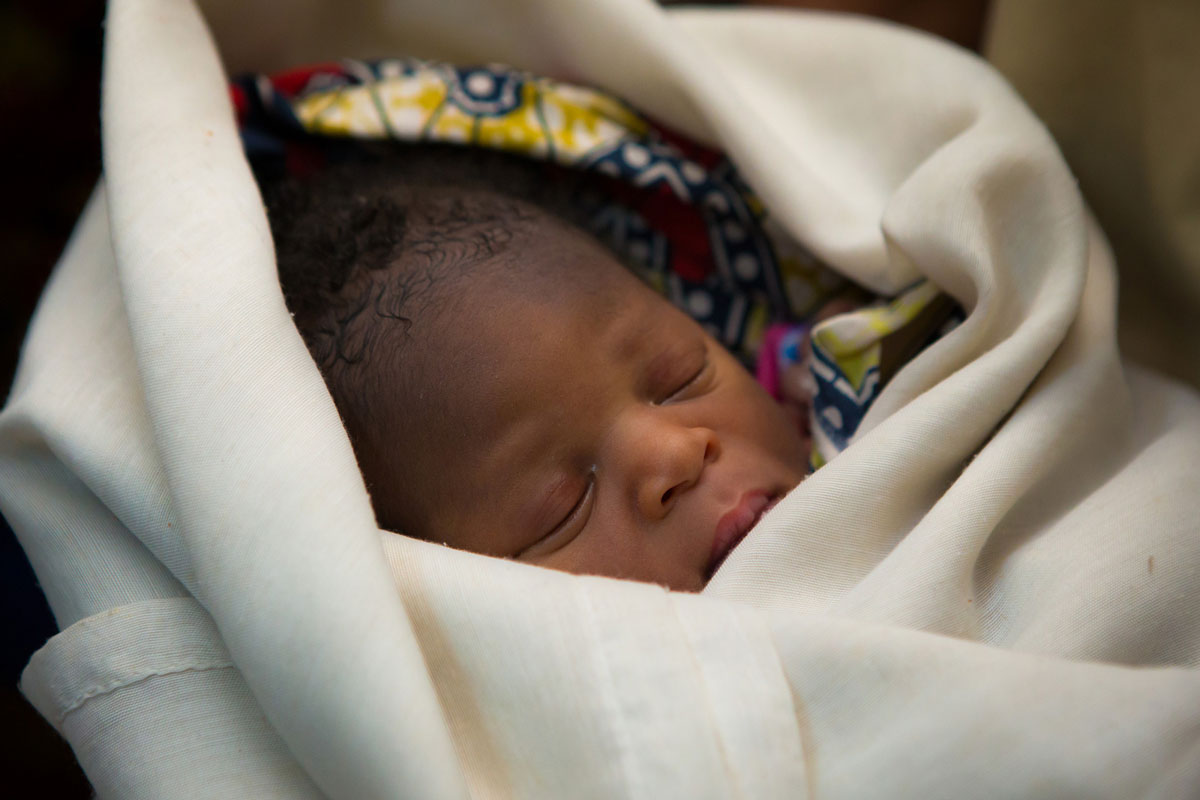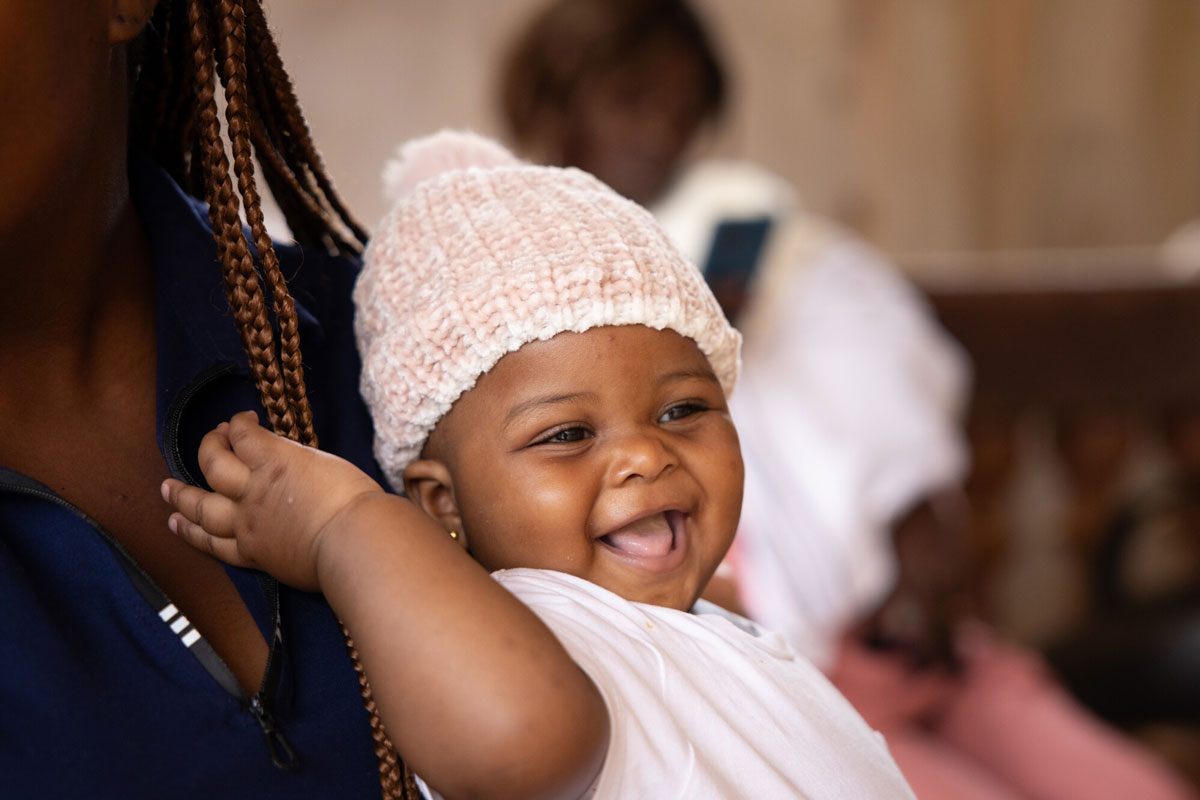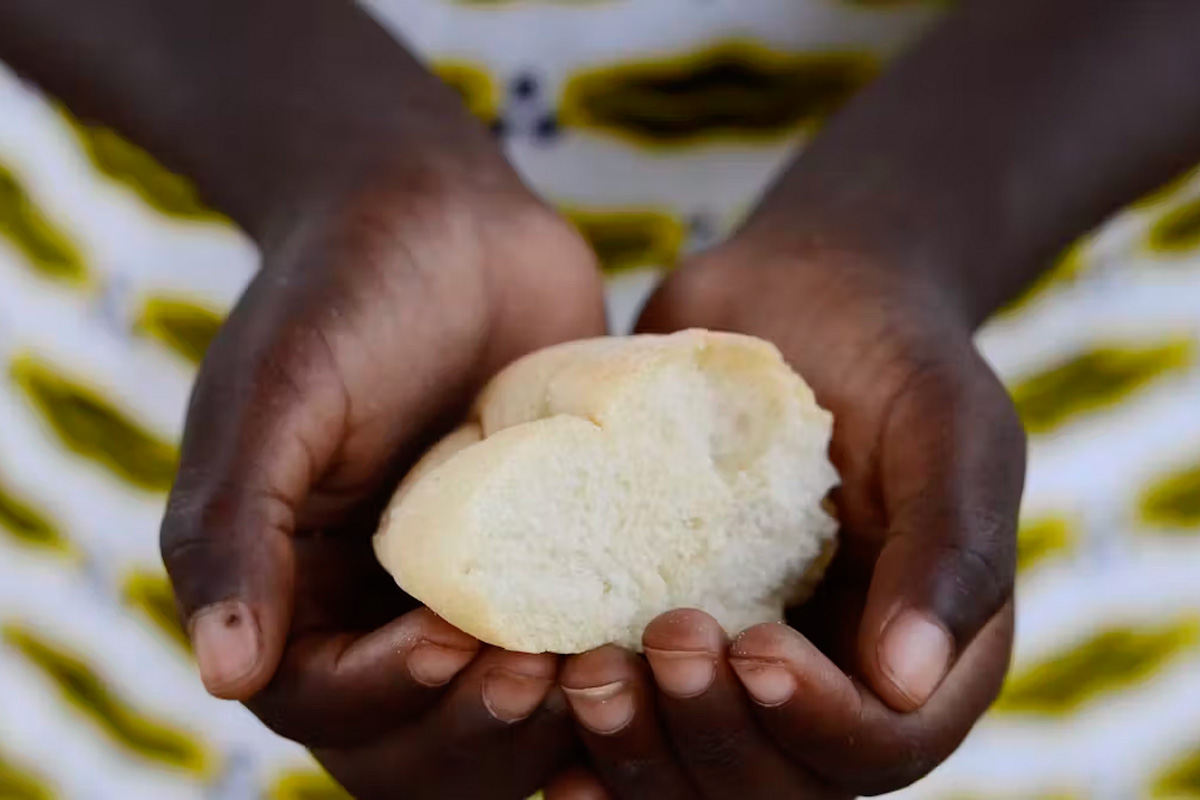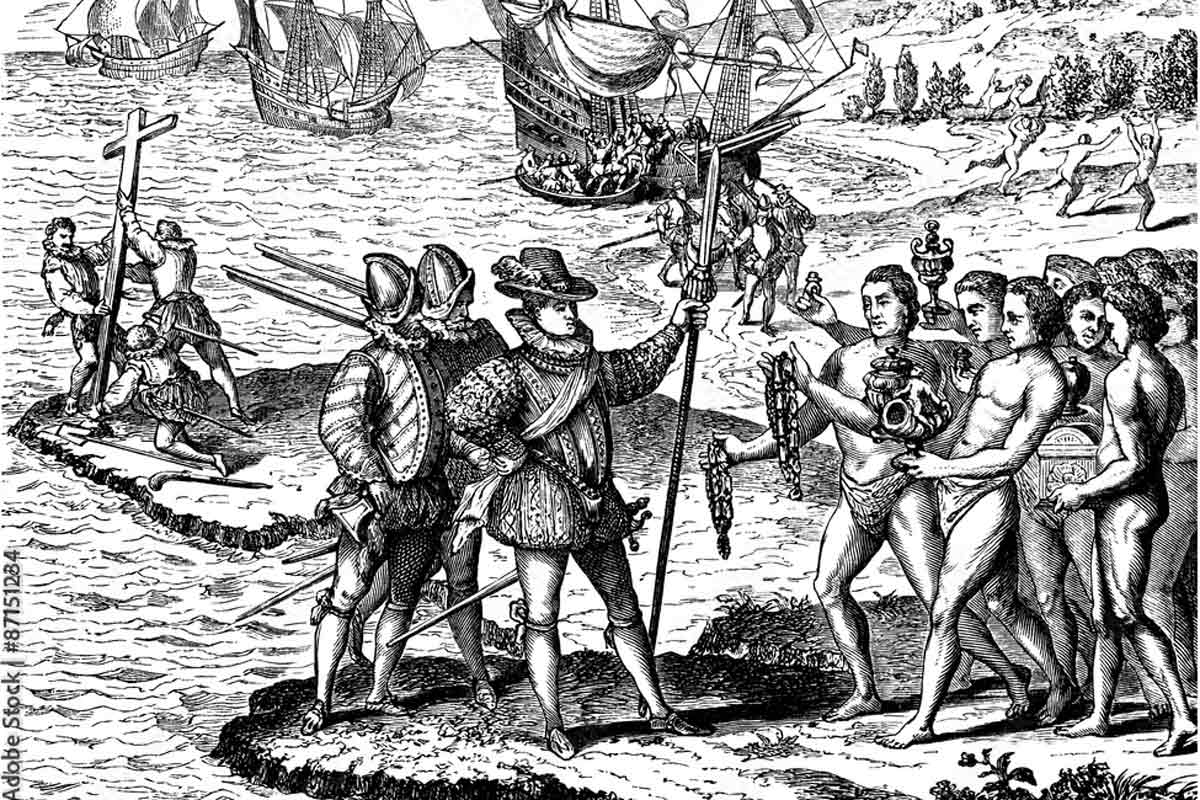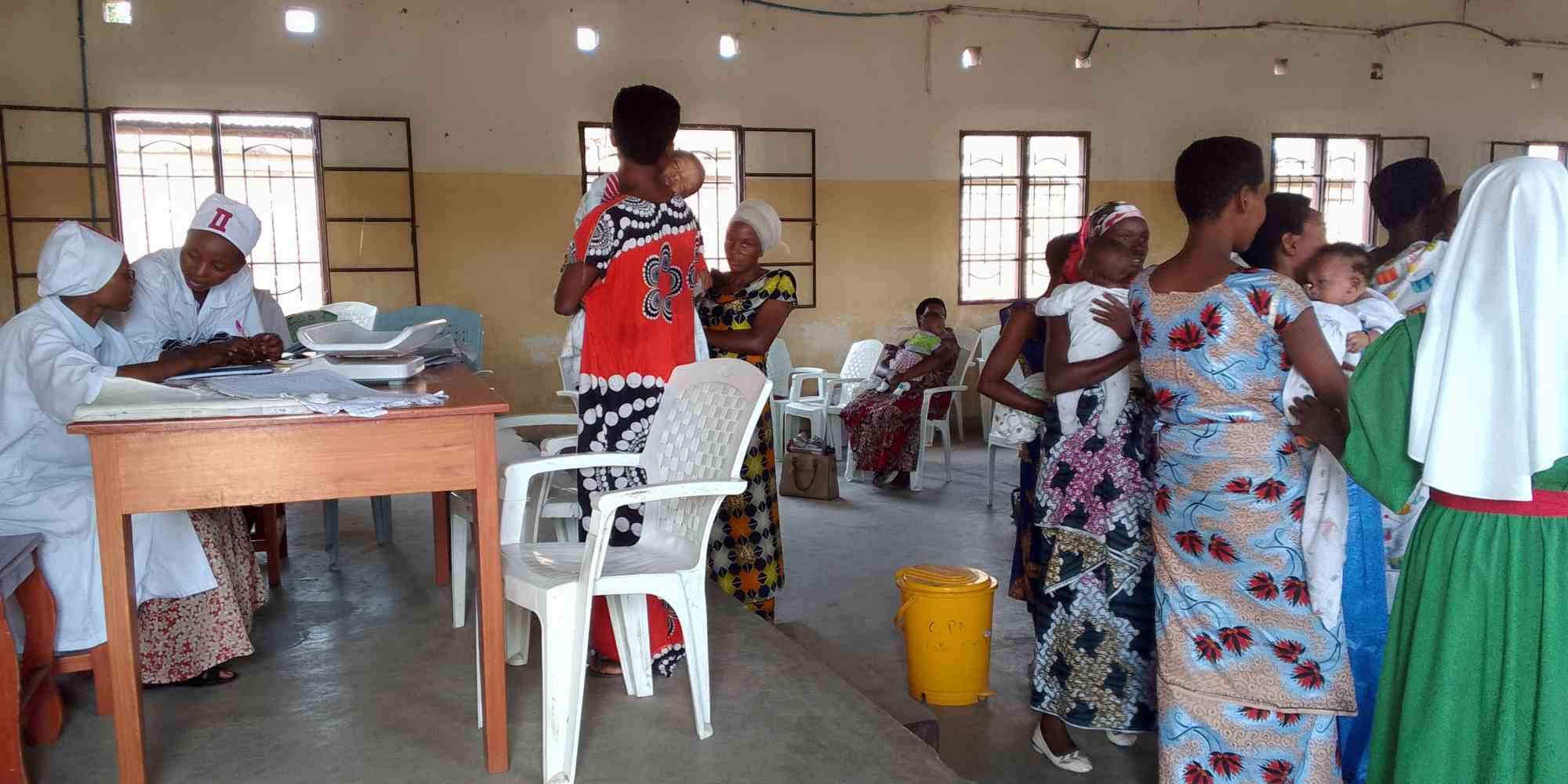Mark McDonald, Georgetown University
Over a few short weeks in September, Zambia’s 1,400 Lions Clubs members embarked on what seemed an insurmountable challenge: to help immunise more than 6 million children against two of the world’s deadliest diseases – measles and rubella.
In August, from his office in the University Teaching Hospital in downtown Lusaka, Doctor Victor Mudenda was plotting the daunting task ahead.
He was working hard to ensure that the coordinating groups of the Lions of District 413 – a group of dedicated community volunteers – were on the same page for a September vaccine campaign launch. Lions needed hundreds of volunteers, nursing and other medical professionals; drivers, printers, designers, t-shirt makers, and marketing experts. Their goal: to get the parents and guardians of more than 6 million Zambian children, aged from 6 months to 15 years, into local clinics, hospitals and schools to be immunised against measles and rubella. Measles remains one of the top vaccine-preventable killers of children, while rubella infection in early pregnancy can cause miscarriage, stillbirth or severe birth defects.
Dr. Mudenda, a 57-year-old pathologist at Zambia’s largest hospital, gained his tremendous skills in the medical halls of London, Belfast and Nottingham during a seven-year education in the United Kingdom.

Photo: Victor Mudenda.
And he’s been here before: four years ago, “Lion Victor” was one of the leaders of a push by international aid organisations for measles immunisation. This was also the Zambian Lions’ first involvement in an immunisation programme, and Victor’s Lions were at the forefront of the battle. “We made 30,000 banners, 20,000 fliers, and 10,000 brochures” he recalls.
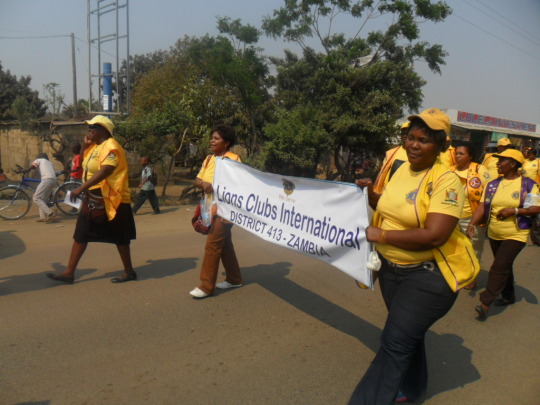
Photo: Victor Mudenda.
“We printed bumper stickers and t-shirts. We rented vehicles, and hand-held megaphones, and toured the streets spreading the message. We also got some assistance from community radio networks and TV stations. We went out as foot soldiers to allay any fears and persuade people to go to the clinics.” In a country where computers, wireless internet and social media expansion are still hampered by poor infrastructure and beyond the reach of many rural citizens, more than 500 Lions of Zambia mobilised to inform and educate communities about the importance of immunisation. Together, they got word out on the street and the campaign surpassed its goals. Astonishingly, it cost just US $1.40 per child. It was a huge success in traditional mobilisation.
Since, then the Lions of Zambia have grown to more than 50 clubs. Their 1,400 members’ impact on local communities can be measured in the provision of health services, literacy, education, environmental preservation, disaster relief, clothing and nutrition. With so many foot-soldiers available this time around, Dr. Mudenda wanted to stick with the traditional marketing methods.
“Social media here is more a tool of entertainment than education. Many people in urban areas have Android phones, and use “WhatsApp”. But not in the deep rural settings.”
The target numbers for immunisation against measles and rubella represent more than half of African nation’s very young population. But Dr. Mudenda says the numbers themselves are not the biggest obstacle.

Photo: Victor Mudenda.
“The biggest challenge is fear. Many parents believe immunisation leads to HIV infections and other problems. They want to stay away. Our education programme is aimed at forestalling those fears.”Dr. Mudenda says the social mobilisation and publicity campaign for the current measles vaccine programme also has to overcome social norms in Zambia, where there is no tradition of regular visits to a clinic and clinics are underfunded.
“There is a low understanding in the communities here of the need for people to be examined by doctors on a regular basis, to assess whether they are sick or not sick.” Measles is one of the five major causes of childhood illness in Zambia. An estimated 62% of Zambians have no access to safe water and the country has a low per capita income. The highly contagious disease thrives in such environments, but its prevalence will be reduced dramatically by mass immunisation.

Photo: Victor Mudenda.
One of the goals of this latest programme is to raise the life expectancy in Zambia, currently at 59 for men, and 65 for women. Gavi and Lions Clubs International Foundation are working together to help protect tens of millions of children from measles in the world’s poorest countries. Dr Mudenda’s work in Zambia illustrates how social mobilisation is within a community is more than an “extra” – it is mission-critical to saving lives.
Gavi and LCIF’s unique partnership brings together affordable vaccines, international support, a top-notch local ground game, and in-country health workers. The goal: making vaccines more equitable, affordable, and widely available to all children, everywhere.

